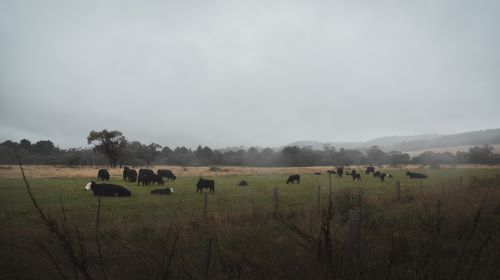
24 March 2023
New UN IPCC report assesses the latest scientific knowledge on climate change, its impacts, and mitigation options. It highlights the role of soil in carbon sequestration and the potential for soil management practices to contribute to mitigating climate change. The report recommends various actions to manage soil sustainably and mitigate climate change, including implementing conservation agriculture, restoring degraded lands, reducing soil erosion, increasing organic matter content in soil, and promoting agroforestry and silvopastoral systems.
A People’s Plan for Nature has been published this week recommending actions to improve the environment, drawn from a 100-person citizen assembly. The plan calls for urgent actions to address the ongoing decline in soil health, including reducing soil erosion, promoting soil organic matter, minimizing soil contamination, improving soil structure, and enhancing soil biodiversity.
A Greenpeace Freedom of Information request has found that the UK government did not follow advice provided by Natural England on the amount of land to target for nature restoration. Natural England highlighted that the UK needs to restore 1.5 million hectares of wildlife-rich habitats to meet the UN target of 30% of land protected by 2030. The government plans to restore 500,000 hectares of land and is concerned increases in the target would overstretch it.
The National Trust, RSPB, and WWF have joined forces to call for urgent action to restore nature in the UK. This follows the new BBC documentary series, Wild Isles, highlighting the challenges to Britain’s nature. The groups are calling for an ambitious program to restore ecosystems, including soils, to improve biodiversity and help address the climate crisis. The initiative would include measures such as regenerative agriculture, tree planting, and peatland restoration to help reverse the damage done to the natural world.
The Ukrainian government has stated that the current war has caused £42 billion worth of environmental damage to the country. Damages have included soils being contaminated with gasoline as oil tanks are shelled and ammunition has led to heavy metals in the soil. Ukraine’s Institute for Soil Science and Agrochemistry Research estimates that the war has degraded at least 40,000 square miles of agricultural land.
Experts are calling for farmers to be given the right incentives to prevent soil degradation, caused by intensive farming practices. Soil degradation is a threat to food production and the environment. Soil scientists at a UN roundtable hosted by the Save Soil campaign, recommend subsidies and tax-breaks to support sustainable soil management practices such as crop rotation, reduced tillage, and cover cropping.
A winter drought in France's Lake Montbel region is affecting farming due to a significant drop in water levels. The lack of water is impacting the soil's ability to retain moisture, which is necessary for crop growth. As a result, local farmers are struggling to grow crops, potentially impacting the region's food supply.
A new Cambridge bypass threatens to destroy farmland rich in wildlife, including important soil ecosystems. The soil in the area is highly fertile due to its proximity to the River Cam and has been used for agriculture for centuries. The bypass, if built, could lead to soil degradation and loss of biodiversity in the area.
Heinz is using the video game, Fortnite, to make young people aware of soil health and current problems with degraded soils. In the game players have to manage a tomato farm while the island that the farm is on continually shrinks. Heinz has now got the game makers, Druid Games, to shrink the island at a speed of 33% to simulate the estimated current rate of global soil degradation.